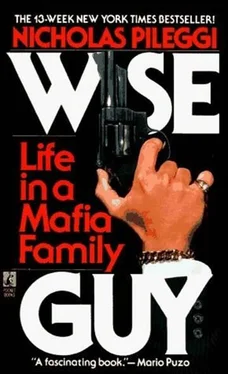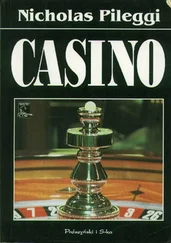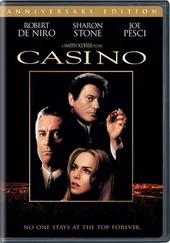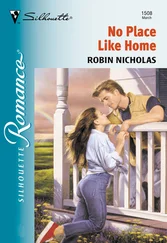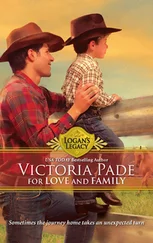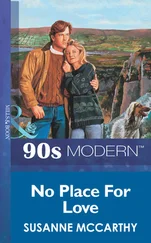"Later that night Frenchy called. He had heard that between four and seven hundred thousand dollars in cash was coming into the airport the following Friday.
"No more dry runs. This was the time to do it. Again, that Friday, Tommy and I picked up the girl, and now she's getting suspicious. She knew we were up to something illegal, but she couldn't figure it out. This time to make things even nicer I bought some terry-cloth robes for the three of them to wear on the way to the steam room. We gave the girl the robes so she could pretend she got them for Frenchy and the guard as presents. She was a great actress. They were all supposed to meet at the motel at around five-thirty.
"It wasn't until about six o'clock when Frenchy and the guard got to the Jade East. By then we're getting nervous. Everything was running late. We had found a locksmith nearby who could duplicate the keys, except he closed at seven. The minute Frenchy and the guard arrived we sent the girl over to rush them along. She hugged the two of them. Frenchy's sweating and rolling his eyes up in his head because he knows we're late. The guard was just a slow and stubborn guy. Every time Frenchy had tried to move the guy along he'd just stand there. He'd get slower. Now at least we had the girl goosing him along, but it still wasn't until six-thirty that they went to their room to get undressed for the steam room.
"The minute they were gone I went right upstairs. I reached under the ashtray in the hall. The key was there. I opened the door, and right next to the guy's pants was his whole key ring. I grabbed the ring and ran downstairs. Jimmy had the car waiting, and we shot out of the motel to the locksmith's. He was on Rockaway Boulevard, near Jamaica Avenue. We went like hell, but when we got there the guy was getting ready to close. We had to bang at his door and beg. Then we didn't know which of the keys was the one we wanted, so we ordered duplicates of all eighteen keys. The guy started to work and when he was finished he only gave us fifteen duplicate keys. I asked where the other three were and he said he didn't have the blanks. Fifteen out of eighteen aren't bad odds, but in this job I didn't want any odds.
"We drove like mad back to the motel and I went upstairs, put the keys down exactly where I had found them, closed the door, and put Frenchy's door key back under the ashtray. Tommy took half his clothes off and went walking around the steam room until Frenchy saw him. That was our signal that the room was clear.
"First thing Saturday morning I met Frenchy near the cargo area. He took the fifteen keys to make sure we had the one that worked. He came back smiling. Not only did the key work but he had seen the sacks we had been waiting for. Frenchy said the best time over the weekend for the heist would be just before midnight. Lots of guys would be coming and going during the new shift and the guard would be on his coffee break at the other end of the warehouse. Frenchy also said that there was not going to be a bank pickup until Monday afternoon because of a Jewish holiday, and that was music to our ears. The delayed pickup, which would normally have been made on Sunday night, meant the loss wouldn't be discovered until Monday afternoon. It also meant the cops wouldn't know when the money had actually disappeared. People might be able to remember one or two strangers around a place on one night but not over a three-day weekend. It's just too long a time to pinpoint anybody at the scene of the crime.
"We had about twelve hours to go. I kept the key in my hand all day long. I was so happy I went out and bought myself the biggest suitcase I could find so I could put the sacks of money inside. At eleven-forty Saturday night Tommy and I drove into the cargo parking area. We had a rented car with bum plates. We waited until the shift began to change. Frenchy said he would be waiting near the platform and that we should just walk in as though we were returning a suitcase to the office. The plan was that he wouldn't acknowledge that he knew me, but if there was any problem he'd be there to straighten it out. He said chances were that no one would bother me, because there were always lots of people wandering in and out picking up suitcases that had been lost and misdirected. I climbed up the platform ramp and walked into the office area, and I could see Frenchy hovering nearby. I could see the room and walked right up to the steel door. I'd had the key in my hand ever since I left the car. I slipped it in, turned it once, walked inside. The room was just like a big, dark closet. I had brought a pen-size flashlight because I didn't want to turn on any lights. The seven white canvas bags were right on the floor. I could see the red seals. I opened the suitcase and put the seven sacks inside and I walked out the door. The suitcase was so heavy I could hardly walk, but Frenchy later said he thought I was leaving empty, because I practically floated out of the joint."
As Henry had hoped, the theft was not discovered until Monday afternoon. The Daily News story Tuesday said that the money had vanished into "thin air" and that "FBI agents swarmed over Air France cargo building 86 at Kennedy, questioning the employees, searching the area and examining the manifests and bills of lading." The New York Times story said: "A thorough search of the building and the cinder block locker where the money was placed failed to turn up the parcels. A work crew of about 20 men as well as an around-the-clock private guard were on duty at the building."
By the time Air France realized its $480,000 was missing, Henry and his pals had already given away $120,000 of it as "tribute" to the mob chiefs who considered Kennedy Airport their turf. They gave $60,000 to Sebastian "Buster" Aloi, the fifty-seven-year-old capo who ran the airport for the Colombo crime family, and the other $60,000 to their own capo, Paul Vario.
"We took care of Buster because it was insurance. It kept everybody happy. We gave Paulie a piece because he was our boss. That's the way it's set up. He protected us. If there was a beef against us by another crew-and there were always beefs against us- Paulie took care of it. He went to the sit-downs and took our part. The rest of the money we pooled. I could have taken my end and gone home, but what was I going to do with it? Put it in the closet? Jimmy kept it in a couple of bookmakers' safes, and if I needed a few bucks I'd take it out, and he'd keep tabs. It was like having a bank account.
"We wanted to spend some money on ourselves. I wanted a new car and some clothes. Karen needed things for the new apartment and the kids. To justify any new spending, the three of us, Jimmy, Tommy, and I, took a trip to Vegas, dropped about twenty grand, and came back bragging that we had won. Everybody knew we went to Vegas a lot and that Jimmy was the kind of guy who would belly up to the craps table and play until his ankles swole. But even then we didn't overdo anything. I put a down payment on a new 'sixty-seven gold Buick Riviera with a black top and financed the rest, using my brother's name. Tommy did the same, except he bought a beige Cadillac with a black top.
"Our first business proposition came about two weeks after the robbery when Paulie came up to us at the backstretch at Aqueduct and said if we joined him in a deal we could buy a fifty-percent interest in Milty Wekar's bookmaking operation. He had Wekar right there with him in the car. Wekar needed some money. He had been betting heavy on something he had and got burned. It was a great opportunity. Wekar had high rollers and bookmakers for customers. He had garment-center executives, Wall Street brokers, doctors and dentists and lawyers. And he had the guys who took their action. He never took bets for less than five hundred or a thousand dollars a shot, and most of the customers would bet six or seven games at once. Vario said he'd put in fifty thousand if we put in the same. Jimmy and Tommy looked at me and we all agreed. Right there at the track. We didn't need any lawyers. We shook hands and I was in the bookmaking business. I was twenty-four.
Читать дальше
